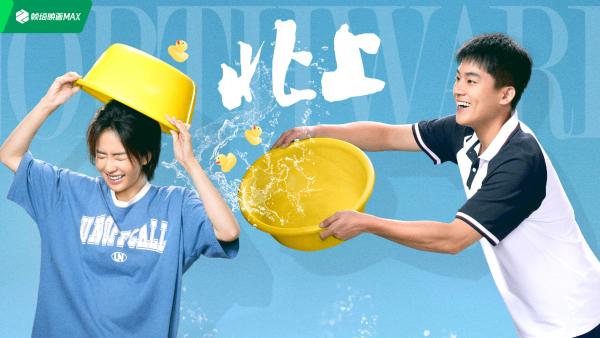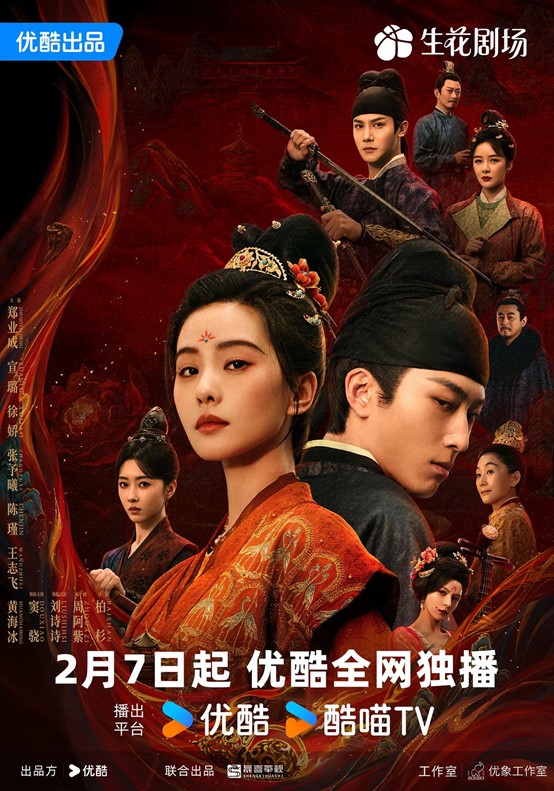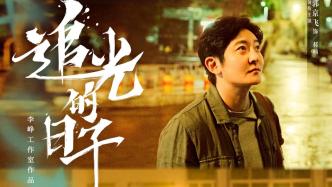
If you use one sentence to describe "The Days of Chasing Light", it is that a teacher led a group of "problem students" (so-called "poor students") to achieve a counterattack in grades during a critical period like the third year of high school. This is a common structure of campus hot-blooded film and television works, and "burning" is also the most common style of such works.
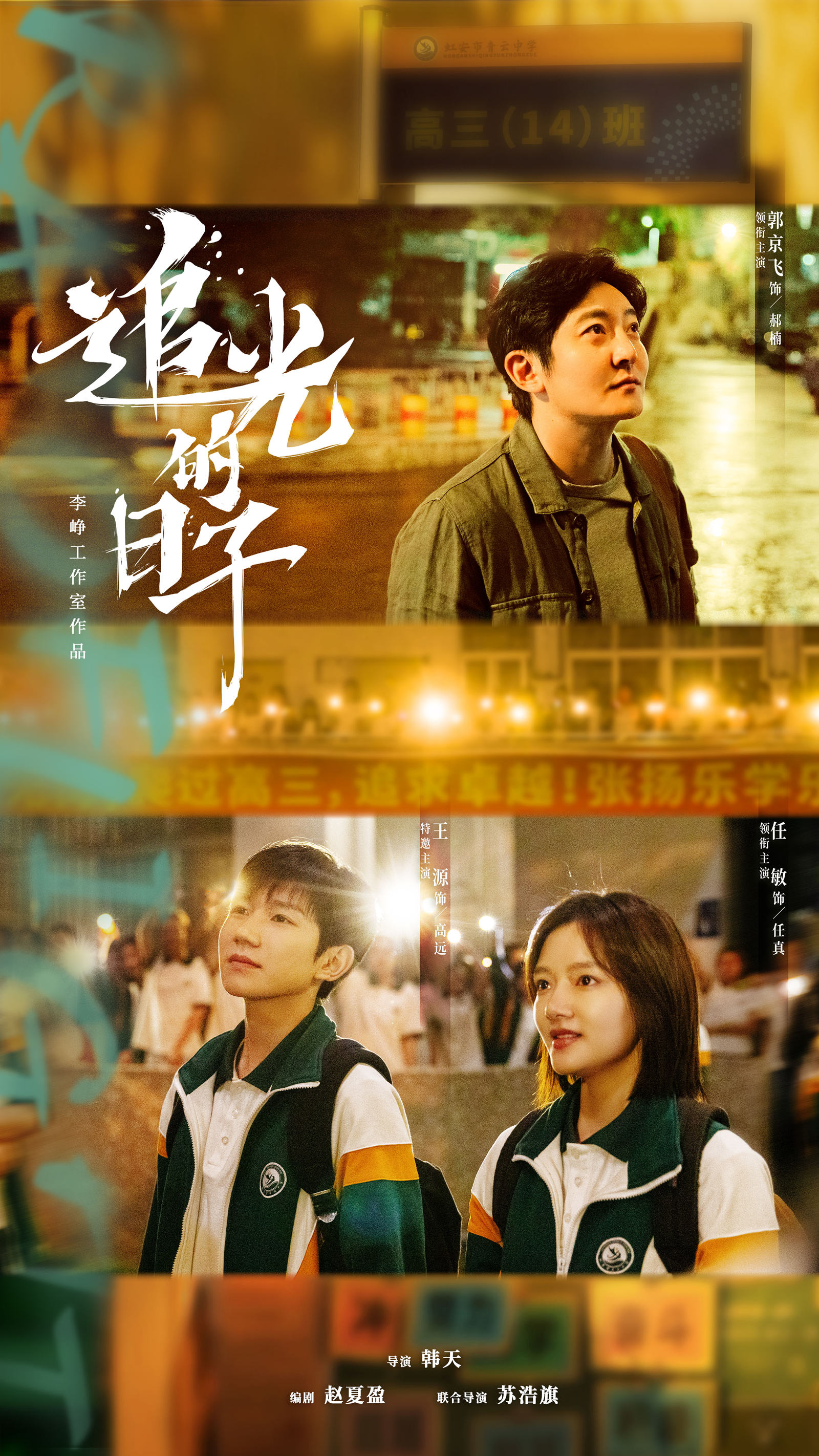
"Days of Chasing Light" poster
"Days of Chasing Light" has made certain adjustments on the basis of this typical structure. First of all, this teacher is not a good teacher with almost no flaws, or a strict teacher who is vigorous and unsmiling. Like his group of "problem students", he is also a "problem teacher".
Hao Nan (played by Guo Jingfei) used to be a gold medal teacher, and the graduating class he led was one of the best in the school. He also won the first prize in the city's teaching competition... All this was three years ago. Three years ago, because of his "mistakes", a tragedy happened to a student, which made Hao Nan thoroughly reflect on his teaching philosophy, and he left the teaching position full of remorse.
For three years, Hao Nan has grown her hair long, always wears flowered shirts on weekdays, opens a billiards hall, often hangs out with "thugs", and encounters "revenge" from a former student every few days... All this makes Hao Nan feel... Like a sloppy "society person". After the business of the billiard hall failed, Hao Nan wanted to find another way to make a living but was repeatedly frustrated. At this moment, he received a recruitment call from Qingyun Middle School, a private high school, inviting him to be a math teacher.
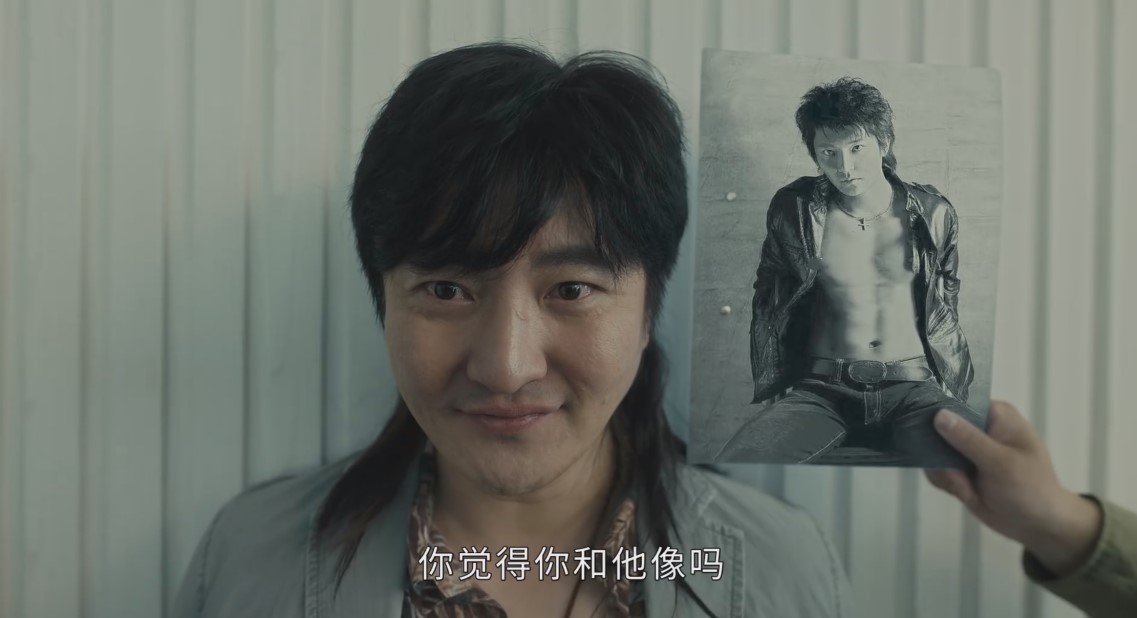
Hao Nan (played by Guo Jingfei) who once "mixed" in the society
Deep down in his heart, Hao Nan still longed to become a teacher, so he took over the teaching position after hesitation. "Problem Teacher" started the journey of "Very Difficult".
For example, he has been away from the teaching position for three years, the teaching materials have undergone great changes, and Hao Nan is teaching the graduating class of the third year of high school, so he is somewhat "in a hurry"; He didn't) and was found out by some students in the class (the students misunderstood). Hao Nan was worried that the students would report him to the principal, but it was difficult to establish prestige in front of these students; Some students publicly revealed that Hao Nan was a "hooligan". Parents exploded. In order to stabilize the situation, the principal uttered harsh words: Hao Nan has a way to make the class reach the top three in the mid-term exam; Class 14 in the third year of high school is the worst class in the grade...
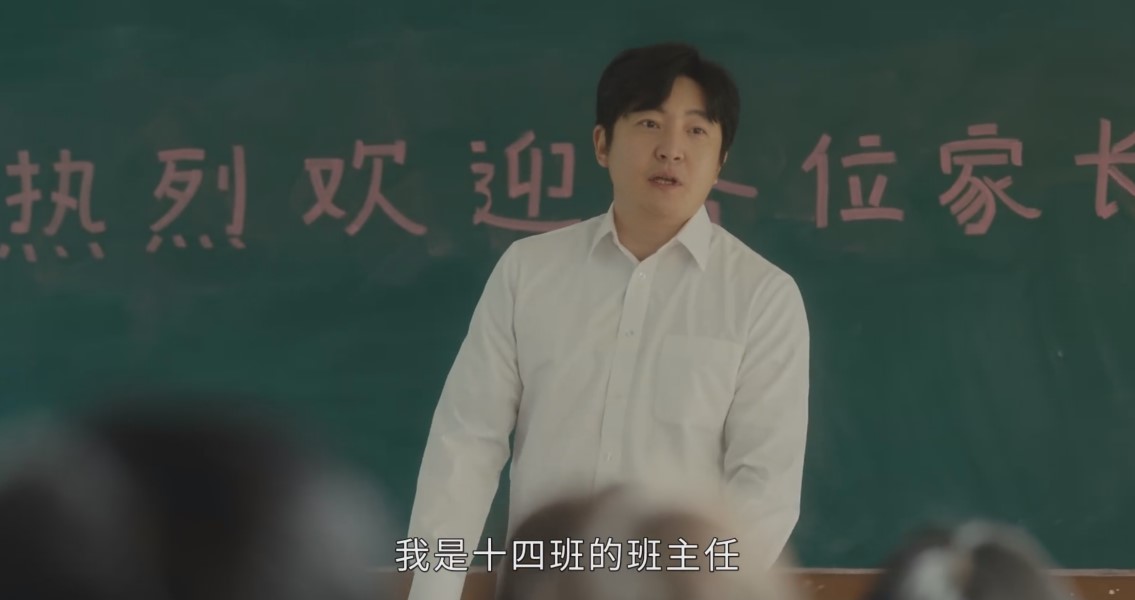
Hao Nan who returned to the teaching position
Hao Nan has her own life problems and real problems to solve. If the audience enters the perspective of Hao Nan, then "Days of Chasing Light" is somewhat like a teacher's workplace drama-how does a "problem teacher" who is not favored and respected win the support of students and how to become a student? Our "captain".
"The Day of Chasing the Light" adopts a two-line narrative, the teacher has the teacher's "problems", and the students also have their own "problems".
In terms of the portrayal of the student group portraits, the series is not limited to the stereotype of the so-called "poor students"-it seems that "problem students" are all students with poor grades, and the reason why their grades are poor is that they do not like to study. The students are the subjects of "chasing the light", which also means that they have been in the "shadow" before. Although it was aired on a set of prime time on CCTV, "Days of Chasing the Light" also reflected the existence of some universal social problems through the group portraits of "problem students" and the "shadows" they were in. In other words, not loving learning is the most superficial phenomenon of "problem students", and their "problems" are more often the result of family problems, education problems, and social problems.
For example, Ren Zhen (played by Ren Min) has an unreliable father. My father can’t say that he doesn’t love her, and it’s not that he doesn’t pay attention to her studies. It’s just that this fatherly love is often so careless and sloppy that he repeatedly “adds chaos”, such as almost making Ren Zhen late for the college entrance examination. Is there any "gateway" for others to find a relationship to let Ren Zhen enter the school of his choice, and he took the initiative to fill in the volunteers for Ren Zhen, but the result was that his father was cheated, and Ren Zhen also failed because of the volunteering problem, so he could only repeat the exam; after repeating, the huge study pressure With no way to relieve the psychological burden, Ren Zhenyi's spirit was on the verge of collapse in the exam. His score in the college entrance examination was on the top line, but after repeating the exam, his score in the joint exam dropped by nearly 200 points...
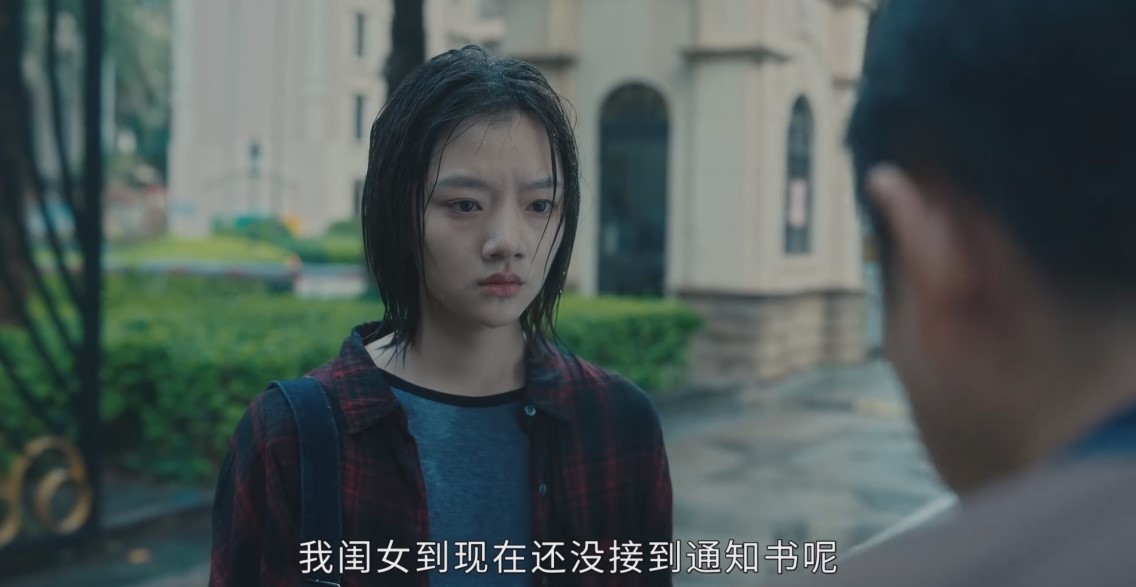
Ren Zhen (played by Ren Min) has an unreliable father
Gao Yuan (played by Wang Yuan) from a medical family was originally an optimistic and cheerful good student. After his brother died unexpectedly, his mother's mental state has been in a bad state and she was indifferent and alienated to Gao Yuan. Gao Yuan, unable to get out of the pain of losing his brother, took a year off from school, and when he returned to the third year of high school, he handed in blank papers in every exam...
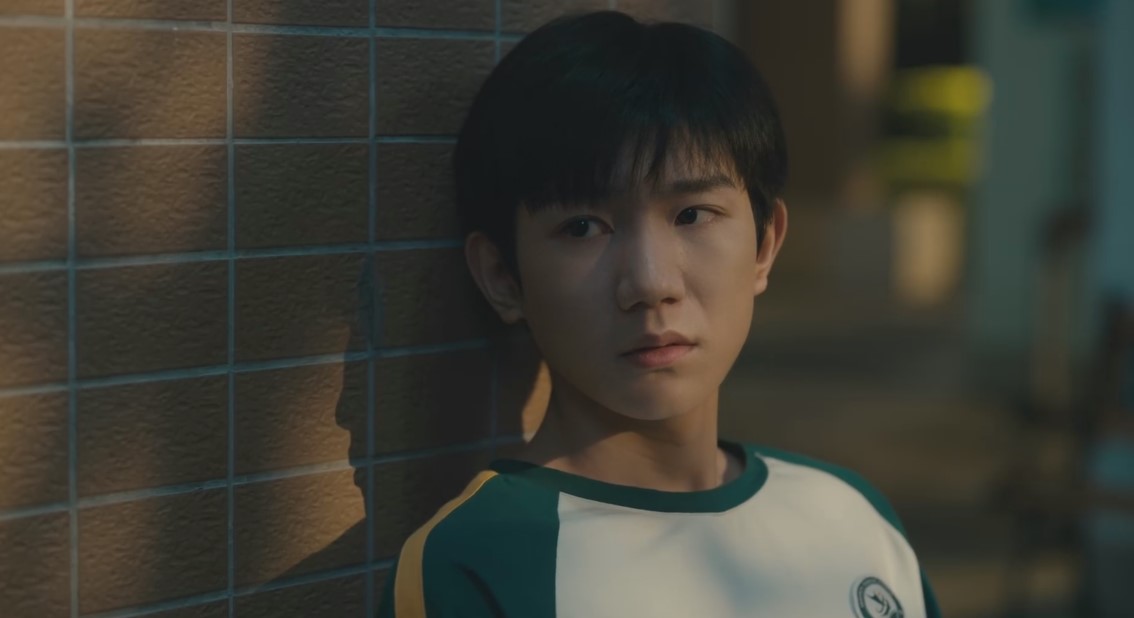
Gao Yuan (played by Wang Yuan)
Another example is the "rich second generation" Wang Fang, because of the long-term denial and suppression of his business father, and his inability to integrate after his father reorganized the family, which led him to abandon himself and make troubles in school; Her parents were separated, and she felt lonely without the company of family affection; Zhao Xiaoxiao, the class monitor who lived with her grandma, was a child from a poor family who was in charge of the family early, and the burden of the family affected her study; Wu Kai from a single-parent family had a dream of painting, but was rejected The negation of the controlling mother; the beauty-loving girl Xia Fan made a boyfriend of a college student, but encountered his PUA...
If every family has scriptures that are difficult to recite, and the family accidents encountered by students are personal "circumstances" that require external help from the school and society, and individual subjective initiative to "overcome"; then children suffer together The education problem is a universal social problem. Instead of alleviating the individual difficulties encountered by the children, the school has further exacerbated their difficulties.
The problems in education are especially clearly reflected in the educational philosophy represented by the year director Li Yaling (played by Li Zheng).
Li Yaling believes in the concept of exam-oriented education, "the test is the magic weapon of the teacher, and the score is the lifeblood of the students". In her eyes, the score is everything to the student. A good student is a good student, and a poor student is a poor student ", and good students naturally have to enjoy more preferential treatment than "poor students". The annual examination is over, and the scores must be announced by the whole school, so that both good students and "poor students" can be "reviewed" by the teachers and students of the whole school; the seats in the class must be ranked according to the grades, and students must be reminded of their "rank" at all times; the learning materials are only There are good classes, and poor classes like Class 14 are not worthy of having them; even the meal time in the cafeteria seems to be in order of the classes, but in fact, the good class (Class 1 where Li Yaling is the head teacher) eats first, Class 14 I basically eat "cold rice and cold dishes" for lunch...
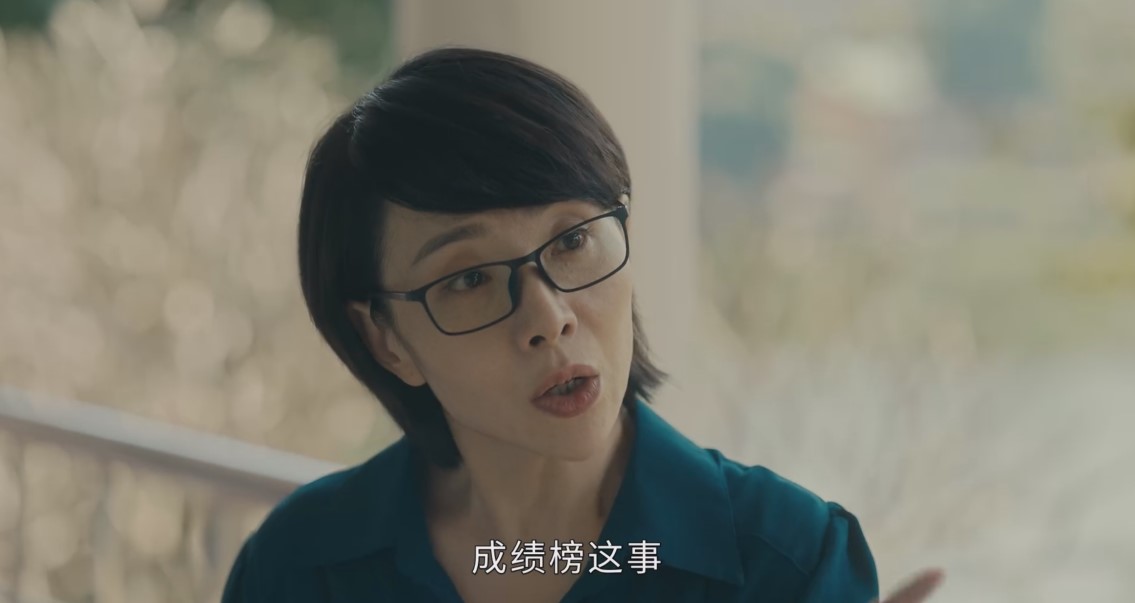
Li Yaling (played by Li Zheng)
Can you say that Li Yaling is not enthusiastic or devoted to teaching work? She spends most of her time and energy on teaching, and the method of dividing students into "three, six, and nine grades" has indeed improved the grades of the grades... But it is hard to say that she is a "good teacher". Because she only has grades in her eyes, if a student's grades are not good, then his family problems, personal problems, and psychological problems will all become problems caused by "poor students". She has a serious attitude towards "poor students" and her words are fierce, and she has not thought about how some of her actions and remarks will cause harm to students who are already suffering from mental difficulties.
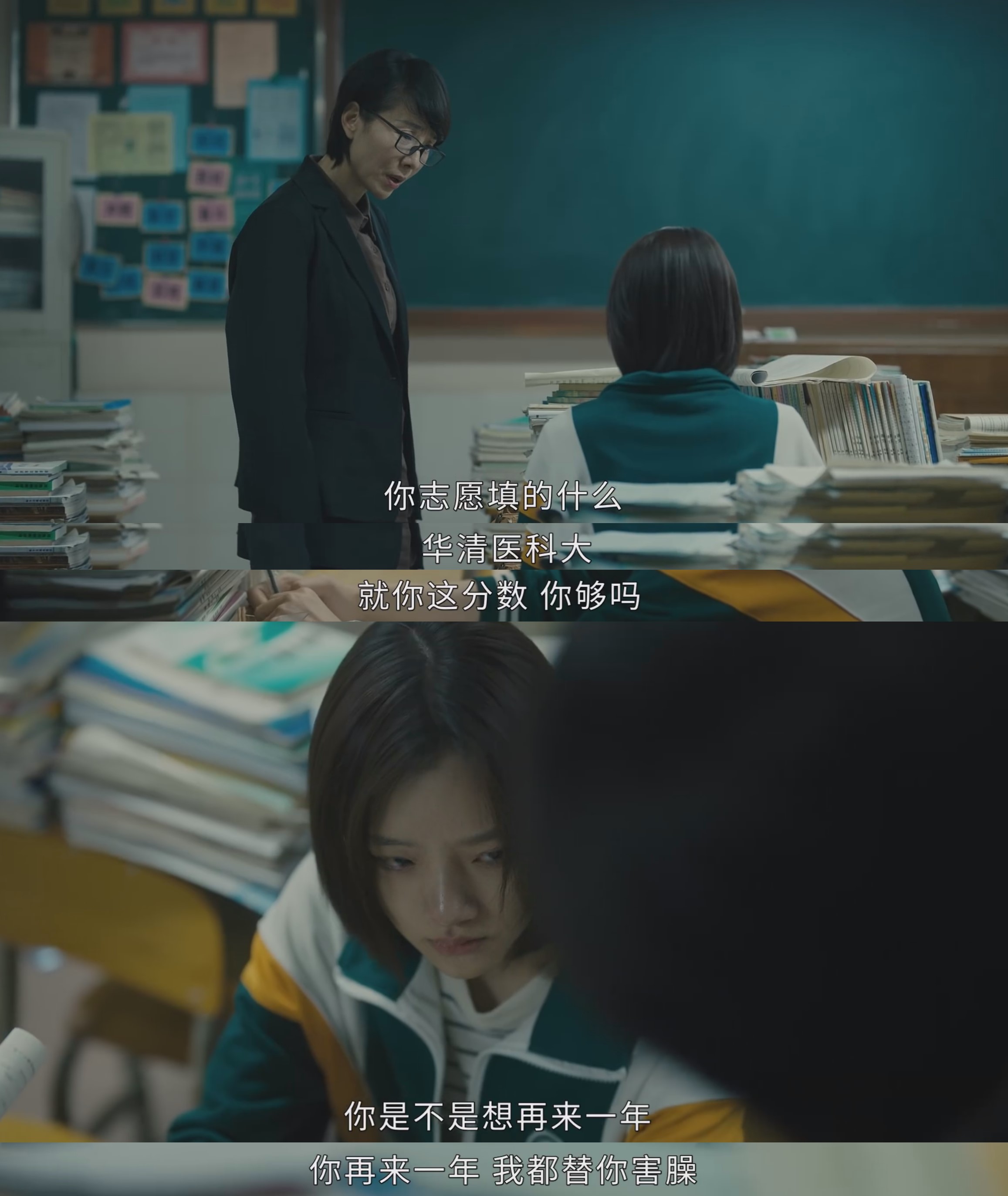
Li Yaling Implements Repressive Education to Students
I believe that many students who have come from the hellish senior year of high school are very familiar with teachers like Li Yaling and the educational philosophy she represents. This is a very heavy place: she is a very caring teacher who has helped many good students, but she and the educational philosophy she represents have indeed brought harm to many students.
What is sad is that under the background that the high school entrance examination has begun to "divert" and the college entrance examination determines the university, scores are still the "lifeblood" of schools and students. Although "Days of Chasing Light" was filmed about a senior year in high school more than 10 years ago, the educational philosophy represented by Li Yaling has always had a broad market and is still practiced in many schools. If you don't believe me, you can take a look at those famous middle schools in your city, are there any "pinching" actions? After entering a higher school, will the school conduct some "testing"? Is there still a "key class" full of tricks? Are teachers like Li Yaling still in the minority?
"The Days of Chasing Light" portrays Hao Nan, a rather idealistic teacher, hoping to bring a breath of fresh air to this rigid and dogmatic educational environment. He personally tore up the school system that divides students into "three, six, nine grades" and made the students in class 14 feel equal and respected. This kind of "exaltation" is too important for the so-called "poor students" Yes, it is the beginning of their self-recognition and self-esteem.
He communicates equally and friendly with each student who encounters a specific problem. From the standpoint of the students, he approaches them, understands them, respects them, analyzes specific problems in detail, guides them carefully, guides them instead of denying them, breaks their inner defenses little by little, and allows students to self-discipline. Acceptance, self-identification, and self-stimulation, seriously grasp the important opportunity of changing the destiny of the college entrance examination, step out of the "shadow", and bravely "chase the light".
These contents constitute the main body of the plot, and the portrayal is indeed a bit too "optimistic" and too simple. Every "problem student" breaks through the predicament of life with a touch of Hao Nan, as if the college entrance examination takes the subjects taught by Hao Nan.
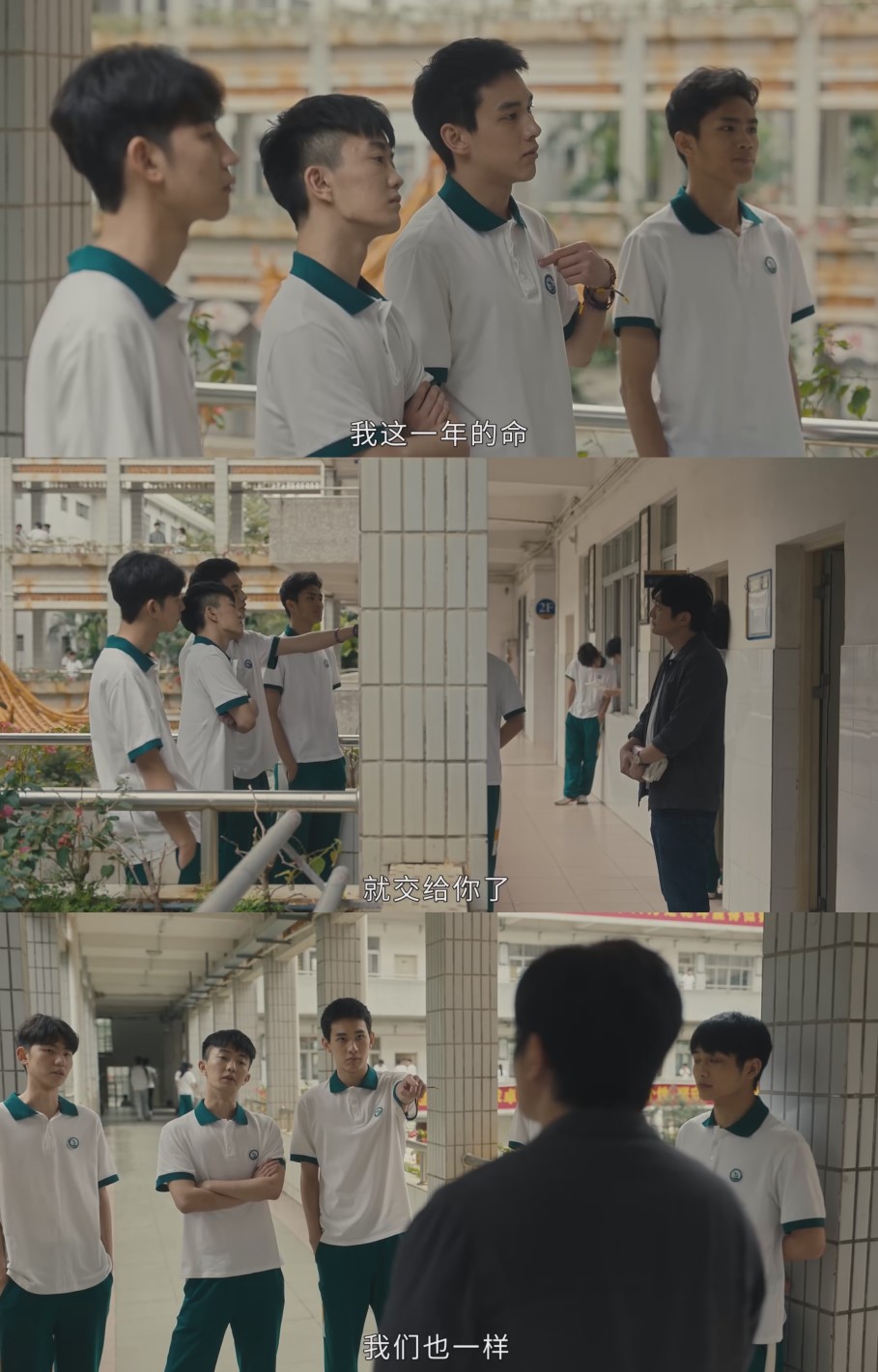
Hao Nan can "surrender" no matter how thorny a student is
In reality, there must be good teachers like Hao Nan, but there may not be so many such good teachers. This does not negate the profession of teachers at all, but while we beautify and exalt teachers, we are actually "morally kidnapping" teachers-it seems that they have to devote all their energy to students to be a good teacher. But apart from their status as teachers, they may also have their own families, with seniors and juniors, and they also have their own responsibilities to bear. Asking teachers to use their rest time to "save" every "problem student" is really demanding, and it is not the fundamental solution to the problem.
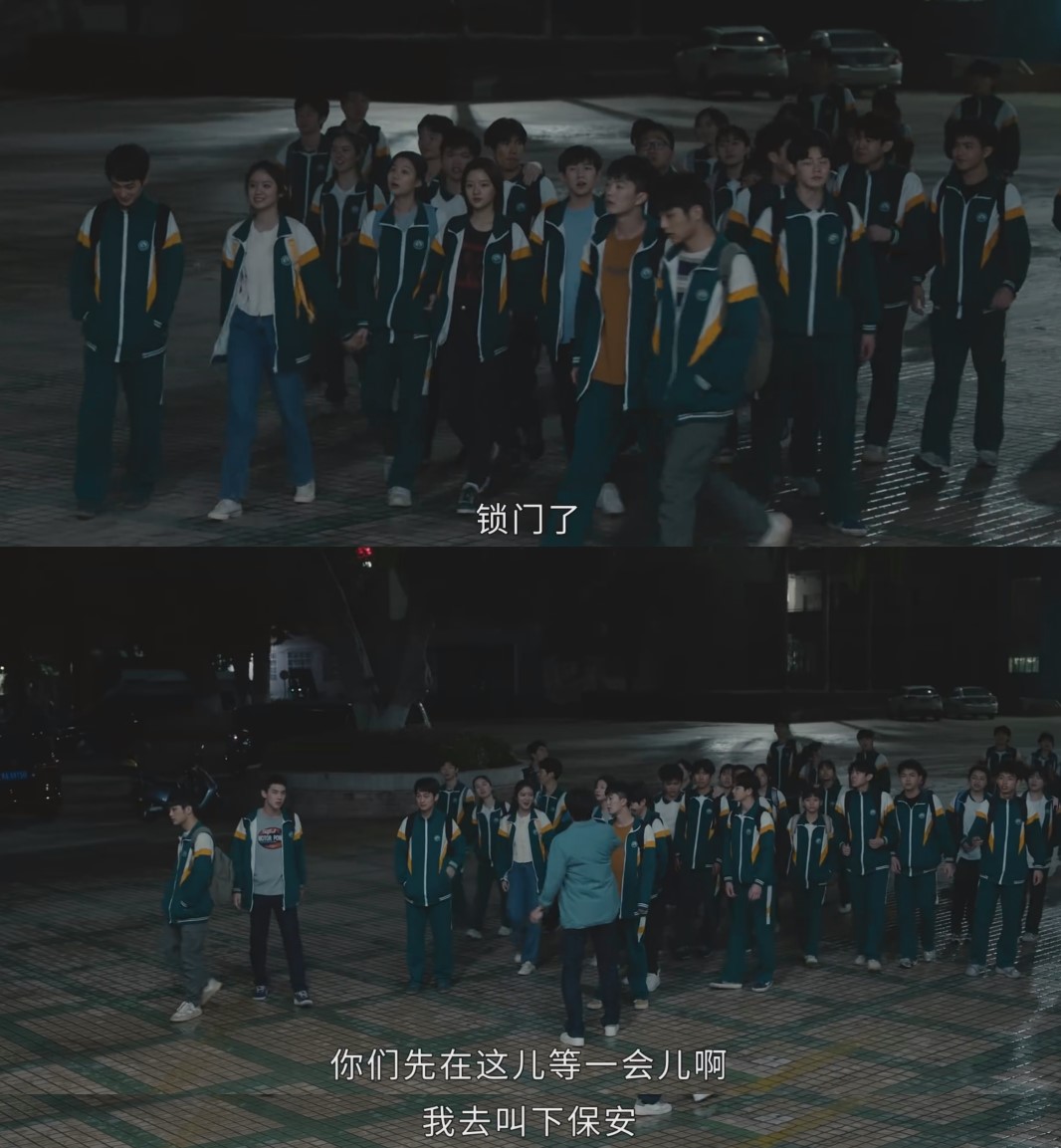
Hao Nan uses the rest time every night to make up lessons for the students
Students' problems cannot be solved by individual good teachers. Individual power is limited, and the continuous improvement of the education system is the fundamental solution. For example, how to crack this increasingly high-pressure learning atmosphere and the educational philosophy of scoring first? It obviously takes a lot of intelligence, and it takes time. But the most urgent thing is that each school must attach great importance to psychological education, and must be equipped with professional psychological teachers (such as Bai Jie, the psychological teacher played by Dong Qing in the play), to provide psychological counseling services for students at any time. For education issues, we should rely more on good systems and professional strength, not just the call of morality and the "sacrifice" of individual good teachers.
